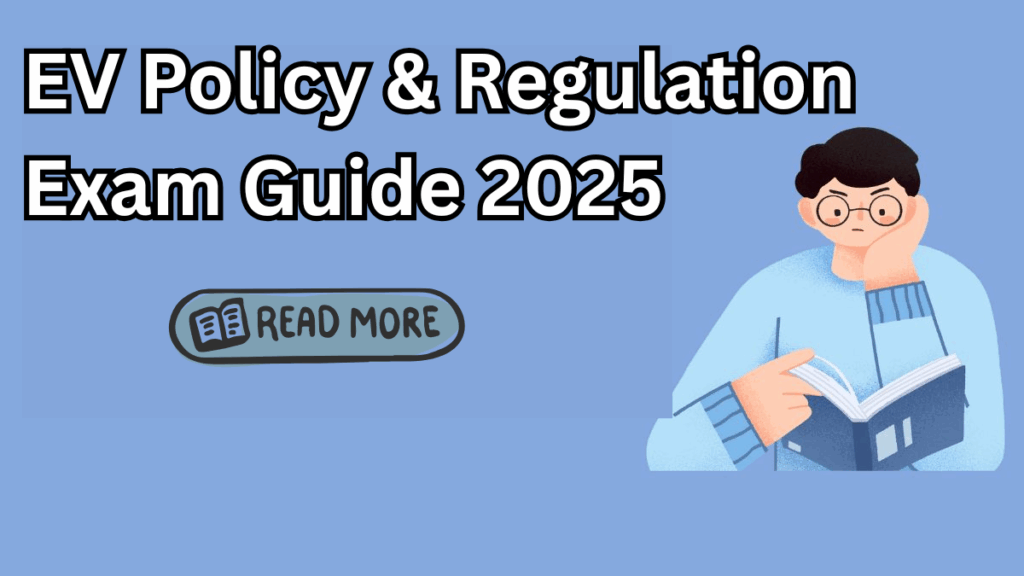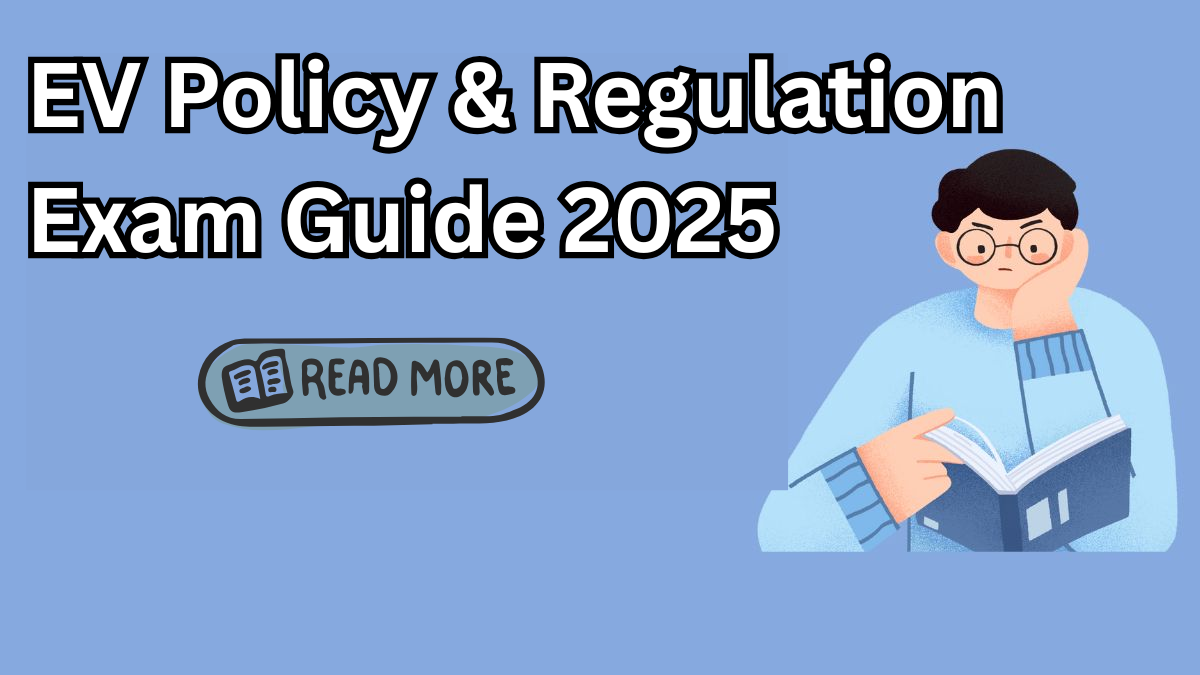As India accelerates towards sustainable mobility, understanding EV policies and regulations is no longer optional for aspiring professionals—it’s essential. Whether you’re preparing for competitive exams or working on your EV certifications, this EV Policy Exam Guide India is your ultimate companion.
Let’s break down what you must know in 2025 to ace your EV law and policy assessments.

Why EV Policies Matter in India
India’s electric vehicle push is being driven not just by technology but by strong policy frameworks. These regulations influence manufacturing, infrastructure, subsidies, and long-term adoption goals.
Key reasons to focus on EV laws:
-
Shapes how EVs are produced, sold, and maintained
-
Impacts carbon emissions and environmental goals
-
Directly affects incentives for manufacturers and consumers
-
Essential knowledge for government job exams and technical interviews
Top EV Policies & Government Initiatives to Know
Here’s a snapshot of major EV-related laws and schemes introduced or updated by the Indian government as of 2025:
| Policy/Scheme | Key Points |
|---|---|
| FAME II (Extended to 2025) | Focuses on subsidies for electric 2, 3, and 4-wheelers |
| Battery Swapping Policy 2023 | Allows easy exchange of batteries to reduce downtime |
| Production Linked Incentives | Encourages local manufacturing of EV components and batteries |
| Green Tax Policy | Discourages usage of older, polluting vehicles |
| National Electric Mobility Mission Plan (NEMMP) | Strategic framework for EV development launched by the Ministry of Heavy Industries |
Understanding these helps in mastering both the EV Policy Exam Guide India and practical knowledge for real-world applications.
Regulatory Authorities to Follow
To stay current with EV laws and government updates, students should be aware of the agencies involved in shaping EV policies:
| Authority | Role |
|---|---|
| Ministry of Road Transport and Highways (MoRTH) | Regulates registration, safety, and road transport laws |
| Bureau of Energy Efficiency (BEE) | Sets efficiency standards for EVs |
| Central Electricity Authority (CEA) | Regulates EV charging infrastructure |
| NITI Aayog | Policy think-tank driving EV adoption strategies |
Exam Topics Covered in the 2025 EV Policy Syllabus
If you’re preparing for EV-related exams, expect questions from the following topics:
-
Recent updates in FAME II and future policies
-
Battery safety norms and circular economy guidelines
-
Charging infrastructure rules and interoperability protocols
-
Tax incentives and subsidies for EV buyers and sellers
-
Roles of central vs. state governments in EV regulation
Tips to Crack the EV Policy Exam in India
Here are some quick hacks to help you prepare:
-
Follow recent news: Subscribe to updates from MoRTH, NITI Aayog, and BEE.
-
Use government sources: Refer to PIB, India.gov.in, and EV-specific whitepapers.
-
Mock tests: Solve previous year questions and policy-based case studies.
-
Highlight state-level policies: Some exams ask about specific initiatives in Delhi, Maharashtra, or Tamil Nadu.
EV Laws and Government Updates to Watch in 2025
Stay ahead of the curve with these upcoming and proposed policy shifts:
| Update | Expected Impact |
|---|---|
| FAME III rollout | Broader coverage for electric buses and rural mobility |
| Mandatory EV quota for fleets | Likely enforcement in logistics and delivery companies |
| Pan-India battery recycling norms | Promotes sustainability and proper e-waste management |
These topics are highly likely to appear in your exams or interviews.
FAQs
Q1. What is the EV Policy Exam Guide India designed for?
The guide is tailored for students, professionals, and aspirants appearing for government or technical exams related to electric vehicle policies, regulations, and schemes.
Q2. Where can I find authentic information on EV laws and government updates?
Trusted sources include government portals like PIB, MoRTH, NITI Aayog, and the Ministry of Heavy Industries.
Q3. How often are EV regulations updated in India?
Updates may be announced quarterly or annually depending on technology changes, fiscal budgets, and global trends. Staying alert to new guidelines is crucial.
Q4. Are state-specific EV policies also important for exams?
Yes. Many exams now feature questions on leading EV policies from states like Delhi, Karnataka, and Tamil Nadu, especially those offering aggressive subsidies and infrastructure goals.
Click here to learn more
